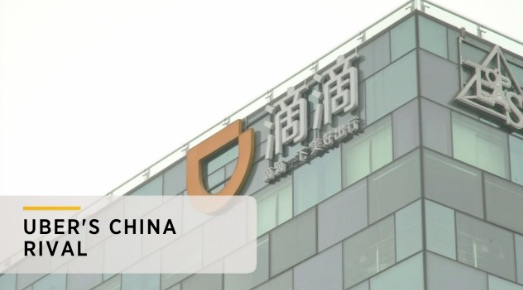Apple-backed Chinese ride sharing company Didi Chuxing is acquiring rival UberChina’s operations in a $35 billion deal. The acquisition ends a marketshare battle that led to both companies losing billions as they competed for customers and drivers.

Didi will buy Uber’s brand, business and data in the country, the Chinese company said in a statement. Uber Technologies and Uber China’s other shareholders, including search giant Baidu Inc., will receive a 20 percent economic stake in the combined company. Didi founder Cheng Wei and Uber Chief Executive Officer Travis Kalanick will join each other’s boards.
The deal brings a merciful end to a battle for leadership in China’s fast-expanding ride-sharing market. Uber had been spending over $1 billion per year in its bid for ride-hailing supremacy, and Didi had spent similar amounts via subsidies to drivers and riders, in an attempt to take the top spot in the market.
Bloomberg says its sources tell them Didi’s valuation after the deal will be $35 billion, the publication wouldn’t name their sources as the details of the deal are not yet public.
Didi purchased competitor Kuaidi last year, in an attempt to create a native Chinese ride-sharing solution to better battle it out with U.S.-born Uber. Apple invested $1 billion in Didi earlier this year, in a round of investment that saw the company valued at $28 billion. Apple CEO Tim Cook said at the time that Apple’s investment was for strategic as well as financial reasons, providing “a chance to learn more about certain segments of the China market.”
As for Uber, their investors had been pushing for a sale of the company’s Chinese assets, in an effort to focus on more promising opportunities. Uber had lost over $2 billion in the country, says Bloomberg’s “people familiar with the matter.”
“As an entrepreneur, I’ve learned that being successful is about listening to your head as well as following your heart,” Kalanick wrote in a blog post obtained by Bloomberg before publication. “I have no doubt that Uber China and Didi Chuxing will be stronger together.”
The deal is subject to Chinese government approval, as the merging of the top two ride-hailing companies in the country may warrant close government scrutiny, as official determine the possibility of a monopoly. “The ministry of commerce has to define the size of the market and see if the car-hailing business Didi and Uber are offering can be replaced by similar services,” said Deng Zhisong, senior partner at Beijing-based law firm Dentons. “If you count taxi services and public transportation, the car-hailing sector will not have a market share that significant.”


